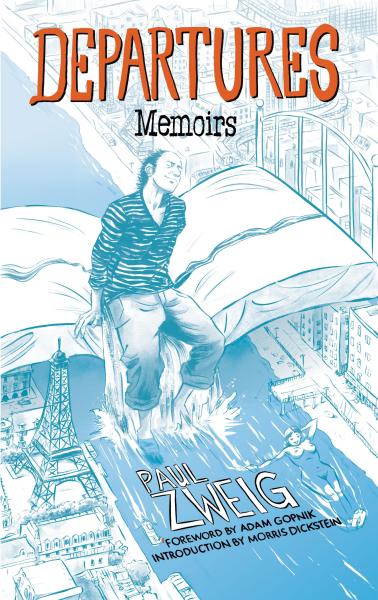Description
Departures is Paul Zweig’s celebration of life and love. Zweig thought of himself as a sojourner, a contemporary Wandering Jew, a man with “a loose wire in his genes.” He led a number of distinct lives: as a Jewish child in Brooklyn and on a farm in the Catskills; as a literature student at Columbia; as a young exile who spent a decade in Paris transforming himself into a French intellectual, absorbing the language, sex, culture, and leftist politics; and as an American man-of-letters who produced a steady stream of poems, essays, and wide-ranging works of literary scholarship and criticism. In 1978, at the age of forty-three, he abruptly entered a new life—”the life of the dying”—which he inhabited for the next six years. His writing was guided by a steely determination to hold the more pressing and distorting sentiments—self-pity, regret, anger, fear—at bay for the sake of his lucidity, which became his way through the world of cancer. This memoir stands as a testament to the passion and spirit with which Zweig lived and to the dignity that he brought to his final years.
“An elegant and moving memoir.” —USA Today
“At a time when writers often write with calculated eccentricity rather than out of a fateful obsession, and compose memoirs that seem devoid of self-understanding, [Zweig’s] raw, original studies of culture and his masterly autobiographies provide a rich diet for famished readers.” —Lee Siegel, New York Times
“[Zweig] was never more expressive or appealing than in these final memoirs . . . A moving document of personal integrity.” —Joseph Frank
“The essays are so evocative of their time and place, so perfectly pitched, so persuasive and intense that they form a brilliant kaleidoscopic glimpse of a man in search of himself . . . A remarkable literary legacy.” —Newsday
“There is no better vision of the ecstasy and wonder of our lives. There is no better chronicle of lost youth.” —Gerald Stern
“An elegant and moving memoir.” —USA Today
“At a time when writers often write with calculated eccentricity rather than out of a fateful obsession, and compose memoirs that seem devoid of self-understanding, [Zweig’s] raw, original studies of culture and his masterly autobiographies provide a rich diet for famished readers.” —Lee Siegel, New York Times
“[Zweig] was never more expressive or appealing than in these final memoirs . . . A moving document of personal integrity.” —Joseph Frank
“The essays are so evocative of their time and place, so perfectly pitched, so persuasive and intense that they form a brilliant kaleidoscopic glimpse of a man in search of himself . . . A remarkable literary legacy.” —Newsday
“There is no better vision of the ecstasy and wonder of our lives. There is no better chronicle of lost youth.” —Gerald Stern
Last updated on
Product Details
- Other Press Brand
- Mar 15, 2011 Pub Date:
- 159051291X ISBN-10:
- 9781590512913 ISBN-13:
- 240 Pages
- 8 in * 5 in * 0.74 in Dimensions:
- 1 lb Weight:




